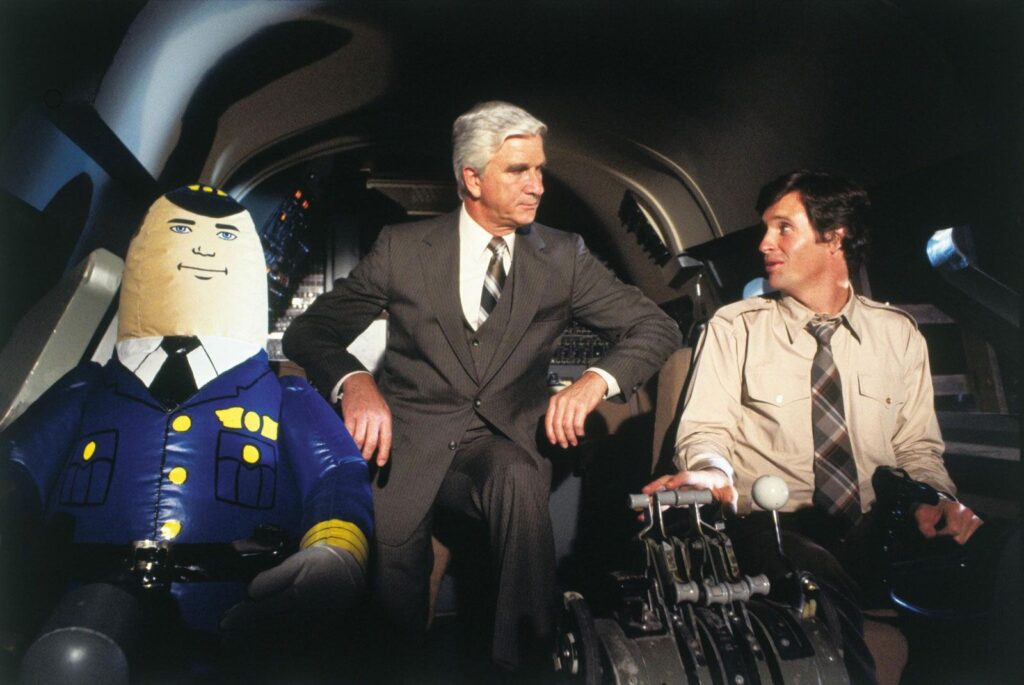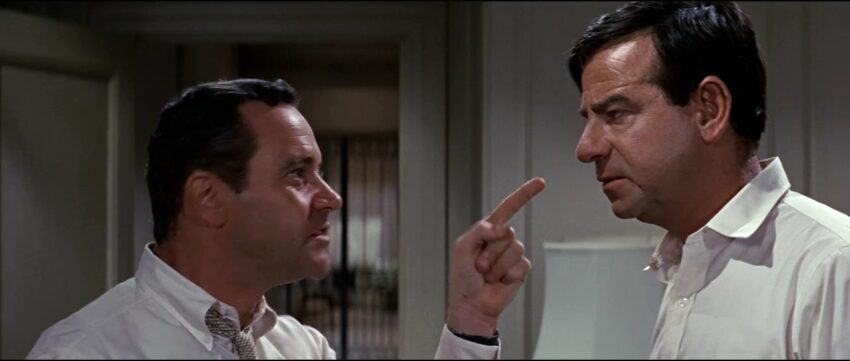I’m guessing it happens to every improviser at least once, and if you’re anything like me it happens a hell of a lot more than that: you’re on stage with a scene partner or two and you’re waiting for your turn to talk and you’re ready to talk because you thought of something to say and boy are you going to say it and you’re extra excited because this certain something you thought of is funny, it’s so funny you hope someone else doesn’t say it first or change the scene before you can say it and it’s so funny you can barely keep it in, it’s so funny it might even button the whole scene—the whole show!—and the heavens will part above you and a pure golden beam of comedy spotlight will shine its luminance upon you and—holy crap!—it’s your turn to speak, your golden moment, and proudly, without hesitation, you say the line, the funny funny line and… and… nothing. Zilch. Nada. The room falls completely silent, and it quickly feels like a vacuumous void sucking every bit of comedy out of the room, the whole performance, nay, your very soul. And what’s worse, everyone knew you thought it was funny too. Don’t ask me how they knew, but they did. We humans are very good at reading one another.
This is what they mean in improv class when they tell you: “Don’t try to be funny.” I know because I’ve said it myself, hundreds of times.
SO, WHY DOES IT FAIL?
Isn’t improv supposed to be funny? Yes. Usually anyway, but that’s a topic for another post. The theater where I usually perform is called a “comedy theater” though, so the expectation is clear. We are putting on comedy shows and people are coming to the shows to laugh at the comedy. So I’m supposed to be funny without trying to be funny?! How does that work?
This question comes up a lot in classes I’ve taught and it’s not the easiest question to answer, but I’m going to take a stab at it, with the help of this quote from comedy legend Jack Lemmon in an interview clip I serendipitously saw on Instagram the other day:
“Good comedy on a good script—and let’s say you’ve been fortunate and been sent a good script with a good part—it’s very seldom that the guy is zany and thinks that he’s funny. That’s one thing if you’re supposed to think you’re funny. But the minute an audience thinks that you think you’re funny, you’re dead.”
I know he’s talking about scripted acting, but he’s still talking about acting, and acting is one part of the improviser’s work, along with writing as we act, and for advanced players, directing the overall look and theme of the show as we act and write. But the problem here comes with the acting. What I think Mr. Lemmon is saying, is that funny characters don’t think they’re funny, like how villains never think they’re the villains. Funny characters are funniest when they’re played seriously, in other words. When you try to be funny and you act like you think you’re funny, you break character, you break the illusion, and the whole thing falls apart.

YOU ARE ENOUGH
I’m a teacher and a coach and I’ve been improvising for more than 25 years, so why do I keep making this same blunder?
Because I’m human and I make mistakes and I also happen to be a human that likes to be funny. When it comes to improv, I know better. I know that writing stand-up and sketch are better avenues for trying to be funny. And while I have a lot more self-control after 25 years of practice and do it in far fewer improv shows than I once did, I still do it. Sometimes. Sometimes it works for me. Maybe that’s another part of the problem. It’s usually most successful in short-form games or when performing for children, or it can be good for a blackout scene in a long-form set, but for the most part, there is actually no need for it in good long-form improv, and here’s why: everyone is funny.
I repeat: EVERYONE IS FUNNY.
It’s a tough pill for some people to swallow, but it’s true. Like singing and dancing and play, being funny is your birthright as a human, and fuck anyone who ever made you feel otherwise. Or maybe it’s more like how everyone is a little bit “crazy” or little bit screwed up. It’s impossible to get through this world without ending up a little warped. But that diversity is good, and if we keep sharing it with each other, we all get a little better and more accepting of differences. You are enough, just the way you are.
And yes, some people are funnier than others. Nature and nurture combine in such a way for certain people that a unique perspective and sense of humor is created that connects with a larger audience. But funny is also subjective and immeasurable. Besides, whoever said you have to be the best at something to be able to do it and enjoy doing it just for the hell of it. Maybe you won’t perform with the premier team at your improv theater, or be the next featured player on SNL, but who cares. Play is for everyone.
FUNNY IS NOT ENOUGH
And the truth is, being funny is not the only thing I like about improv. If being funny was all that mattered to me then I would be writing and performing sketches and stand-up sets all the time. I’ve tried those things though, and they don’t inspire me half as much as improv. I like the risk involved with improv, the vitality and immediacy of the performance, its impermanence, and the collaboration and play with other weird funny humans like me. I like that it’s a rare opportunity for an audience to witness the artistic process taking place and that each show is an experience that the performers share with the audience and only that audience in that moment and never again in the whole history of the world because every show is utterly unique.
Being funny comes after all of that.
But it’s still on the list.

